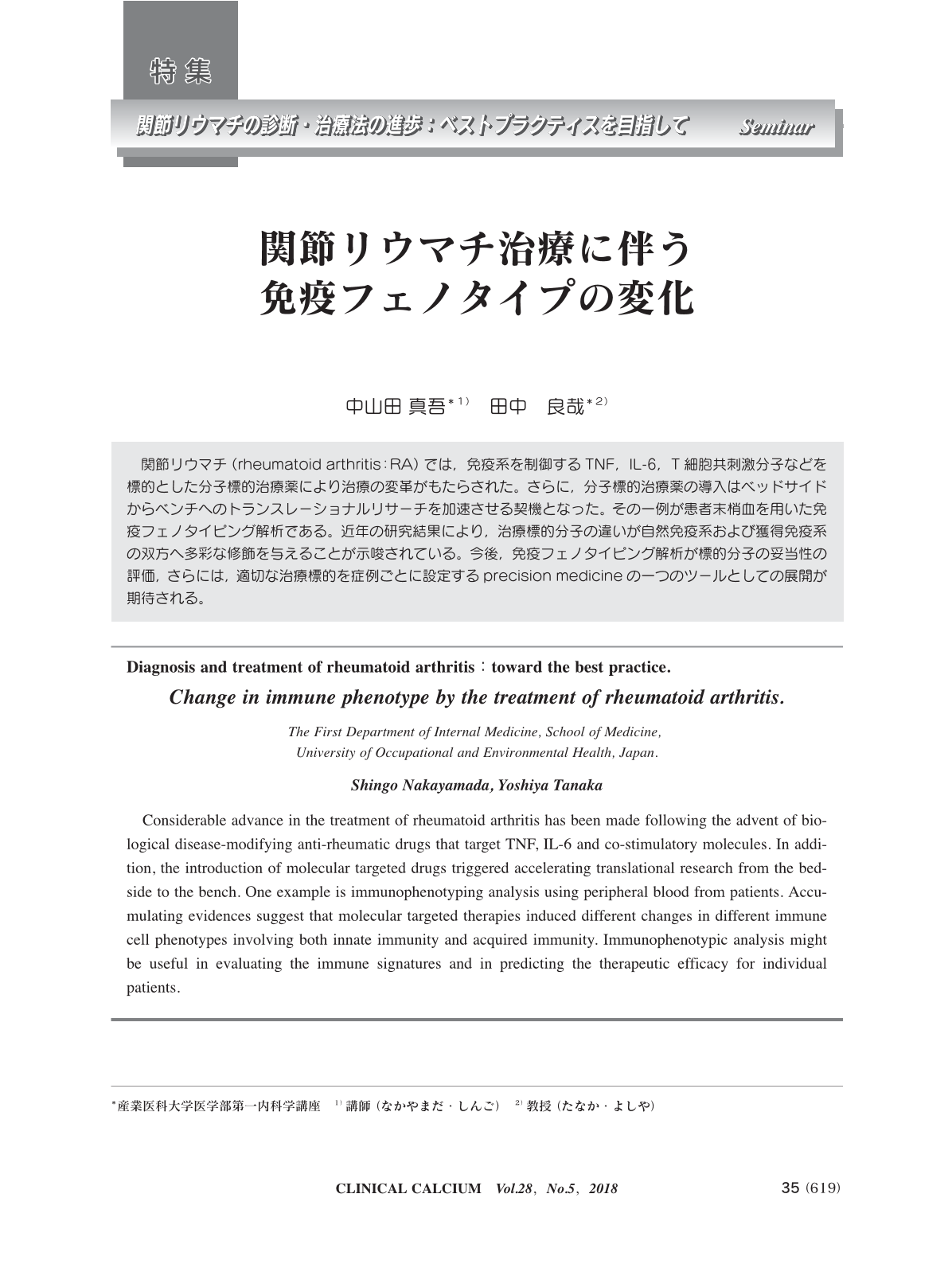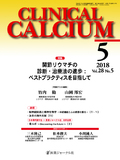Japanese
English
- 有料閲覧
- Abstract 文献概要
- 1ページ目 Look Inside
- 参考文献 Reference
関節リウマチ(rheumatoid arthritis:RA)では,免疫系を制御するTNF,IL-6,T細胞共刺激分子などを標的とした分子標的治療薬により治療の変革がもたらされた。さらに,分子標的治療薬の導入はベッドサイドからベンチへのトランスレーショナルリサーチを加速させる契機となった。その一例が患者末梢血を用いた免疫フェノタイピング解析である。近年の研究結果により,治療標的分子の違いが自然免疫系および獲得免疫系の双方へ多彩な修飾を与えることが示唆されている。今後,免疫フェノタイピング解析が標的分子の妥当性の評価,さらには,適切な治療標的を症例ごとに設定するprecision medicineの一つのツールとしての展開が期待される。
Considerable advance in the treatment of rheumatoid arthritis has been made following the advent of biological disease-modifying anti-rheumatic drugs that target TNF, IL-6 and co-stimulatory molecules. In addition, the introduction of molecular targeted drugs triggered accelerating translational research from the bedside to the bench. One example is immunophenotyping analysis using peripheral blood from patients. Accumulating evidences suggest that molecular targeted therapies induced different changes in different immune cell phenotypes involving both innate immunity and acquired immunity. Immunophenotypic analysis might be useful in evaluating the immune signatures and in predicting the therapeutic efficacy for individual patients.



